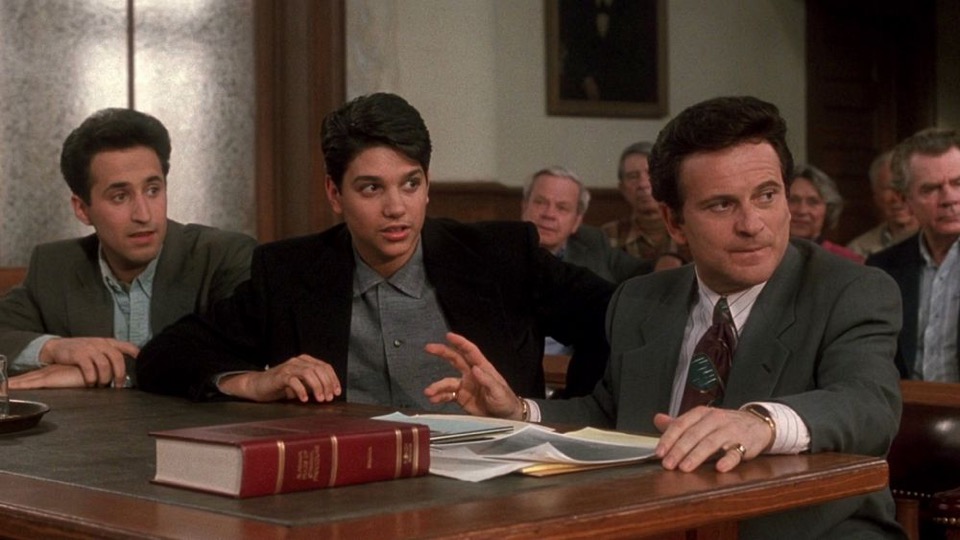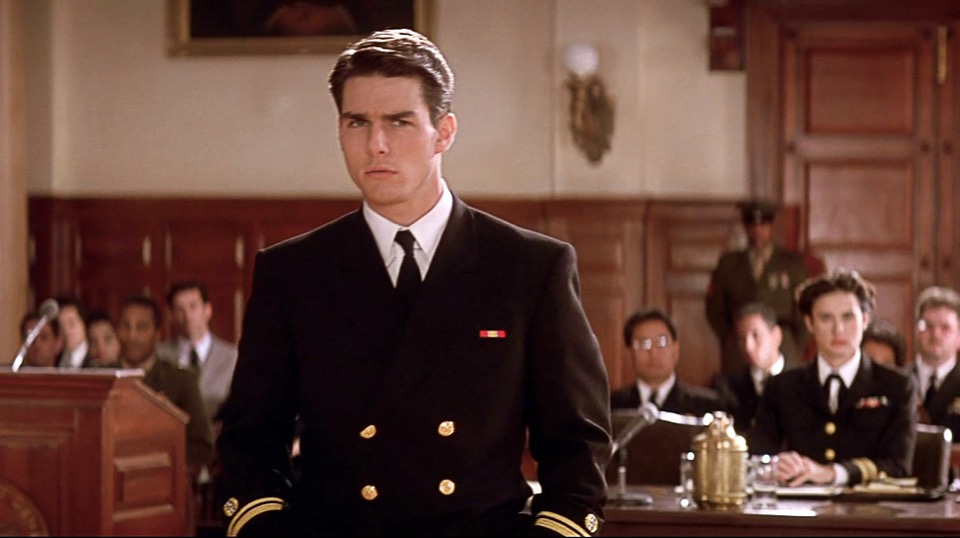
[Omar on the stand from The Wire; not technically a film but way better than almost every movie I’ve ever seen]
Week 1
January 4
Introduction to the Course - Why study gender and the law?
No reading due.
Week 2 - FOUNDATIONAL TERMS
Tuesday, January 9
Roy Richard Grinker. 1997. “Houses in the Rainforest: Gender and Ethnicity among the Lese and Efe in Zaire.” In Perspectives on Africa. R. Grinker and C. Steiner, eds. Pages: 228-245. Cambridge: Blackwell.
Thursday, January 11
Lawrence Rosen. 2008. Law as Culture: An Invitation. Princeton: Princeton University Press. Preface, Introduction, and Chapter 2 “Creating Facts.” Pages: 1-13, 68-130.
Film: Witchcraft among the Azande. 1981. 52 minutes. Andre Singer, director. This film is available online; please click the title to play.
** Please note: there will be no sections on Friday January 12 or Monday January 15 in honor of the Dr. Martin Luther King holiday.
Week 3 - ILLEGAL SPACES
Tuesday, January 16
Emily Margaretten. 2015. Street Life under a Roof: Youth Homelessness in South Africa. Urbana: University of Illinois Press. Pages: 1-92.
The book is for sale in campus bookstores and on reserve at Shapiro library.
Thursday, January 18
Emily Margaretten. 2015. Street Life under a Roof: Youth Homelessness in South Africa. Urbana: University of Illinois Press. Pages: 93-180
We are very lucky to have a guest lecture from Prof. Margaretten today. Please come to lecture with questions for her, about her book or anything else.
Week 4 - SEX WORK
Tuesday, January 23
Elizabeth Bernstein. 2007. "The Meaning of the Purchase: Desire, Demand and the Commerce of Sex." Ethnography 2(3): 389-420.
Thursday, January 25
Film: Live Nude Girls Unite! 2000. 75 minutes. Vicky Funari and Julia Query, directors.
Week 5 - LABORERS
Tuesday, January 30
Norma Iglesias Prieto. 1997. Beautiful Flowers of the Maquiladora: Life Histories of Women Workers in Tijuana. Austin: University of Texas Press. Pages: xix-35.
Thursday, February 1
Film: Made in L.A. 2007. 90 minutes. Almudena Carracedo and Robert Bahar, directors.

[My Cousin Vinny, 1992; and a far better film than that trailer suggests]
Week 6
Tuesday, February 6
First in-class exam
Thursday, February 8 - DOMESTIC VIOLENCE
Mindie Lazuras-Black. 2007. Everyday Harm: Domestic Violence, Court Rites, and Cultures of Reconciliation. Urbana: University of Illinois Press. “Introduction” and Chapter 1 “Imagining and Implementing Domestic Violence Law.”
Week 7 - DOMESTIC VIOLENCE
Tuesday, February 13
Mindie Lazuras-Black. 2007. Everyday Harm: Domestic Violence, Court Rites, and Cultures of Reconciliation. Urbana: University of Illinois Press. Chapter 4 “Court Rites” and Chapter 5 “Time and the Legal Process.”
Thursday, February 15 - MARRIAGE
Nancy Cott. 2001. Public Vows: A History of Marriage and The Nation. Cambridge: Harvard University Press. Chapter 2: “Perfecting Community Rules with State Laws.” and Chapter 8 "Public Sanctity for a Private Realm."
Week 8 - MARRIAGE
Tuesday, February 20
Robert A. Pratt. 1997-8. "Crossing the Color Line: A Historical Assessment and Personal Narrative of Loving v. Virginia." Howard Law Journal 41: 229-244.
Thursday, February 22
Film: The Freedom to Marry. 2016. 86 minutes. Eddie Rosenstein, director. The film is streaming from Canvas / pages / films
Week 9 - DIVORCE
Tuesday, March 6
Bob Simpson. 1997. “On Gifts, Payments, and Disputes: Divorce and Changing Family Structures in Contemporary Britain.” The Journal of the Royal Anthropological Institute 3(4): 731-745.
Thursday, March 8
Allison Alexy. forthcoming. "Constructing Mutuality: The Legal Process of Divorce." From her Intimate Disconnections: Divorce and the Romance of Independence in Contemporary Japan.
Week 10 - CHILDREN’S RIGHTS
Tuesday, March 13
Vera Mackie. 2014. "Birth registration and the right to have rights: The changing family and the unchanging koseki." In Japan’s Household Registration System and Citizenship: Koseki, Identification and Documentation. David Chapman and Karl Jakob Krogness, eds., pp. 203-220. London: Routledge.
Thursday, March 15
Film: Rabbit-Proof Fence. 2002. 93 minutes. Phillip Noyce, director. The film is streaming from Canvas / pages / films
Week 11
Tuesday, March 20
Second in-class exam
Thursday, March 22 - WHITE SUPREMACY
Ta-Nehisi Coates. 2014. “The Case for Reparations.” The Atlantic Monthly.
Optional: Frederick Douglass. 1852. “What is the Slave to the Fourth of July?”
These two sets of readings reflect the topic students chose.

[A Few Good Men, 1992]
Week 12
Tuesday, March 27
Michelle Alexander. 2012. The New Jim Crow: Mass Incarceration in the Age of Colorblindness. New York: The New Press. Introduction and Chapter 3 "The Color of Justice,"
Thursday, March 29 - INCARCERATION
Macario Garcia. “Immobile Controls: Dirty Work and the Touch of Gender” from his In Here for a Reason: Mobility, Animacy, and Becoming Human in Correctional America. Doctoral dissertation in the Department of Anthropology at the University of Virginia.
Week 13 - CHILDREN’S WELFARE
Tuesday, April 3
Dorothy Roberts. 2002. Shattered Bonds: The Color Of Child Welfare. New York: Basic Civitas. Introduction, Chapter 2 "The Color of America's Child Welfare System,"
* Please note that the reading ends on page 46, in the middle of a long chapter.
Thursday, April 5 -
Dorothy Roberts. 2002. Shattered Bonds: The Color Of Child Welfare. New York: Basic Civitas. Chapter 5 "Locking Up Parents and Children."
Week 14 - EVICTION
Tuesday, April 10
Matthew Desmond. 2017. Evicted: Poverty and Profit in the American City. New York: Broadway Books. Prologue and Part One, Pages: 1-110.
Thursday, April 12
Matthew Desmond. 2017. Evicted: Poverty and Profit in the American City. New York: Broadway Books. Part Two and Epilogue, Pages: 111-206, and 293-314.
* Please note, you are not required to read Part Three of the book, but of course you are welcome to!
Week 15 - LOOKING BACK AND LOOKING FORWARD
We will use our last session to reflect on our work together and to frame questions moving forward. No new reading is due.
FINAL EXAM - 8-10am on Tuesday, April 24, in our regular classroom.
This is the time that has been assigned to us, and there is no way to change it.
